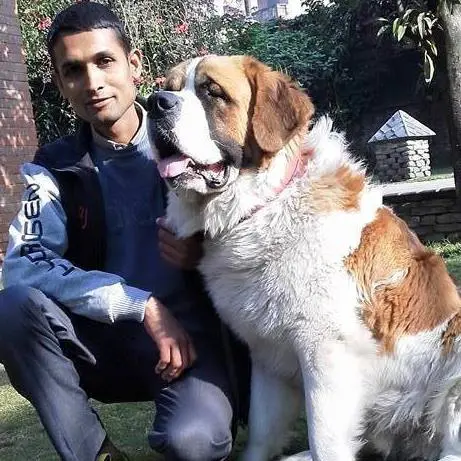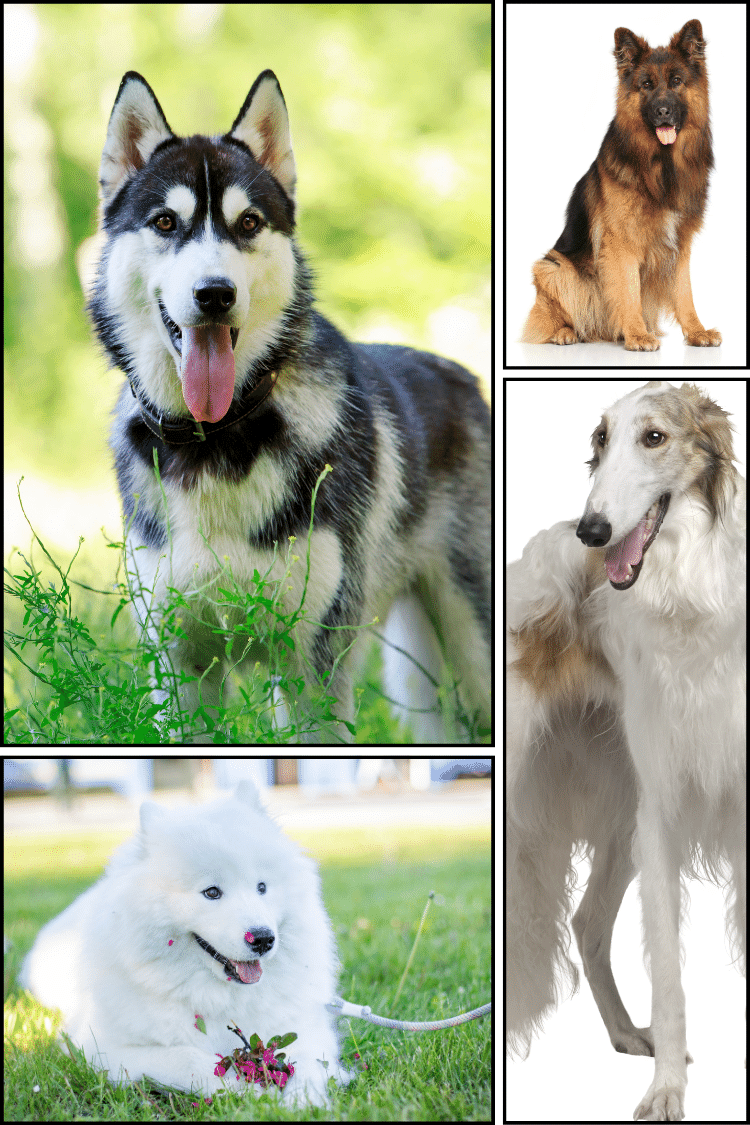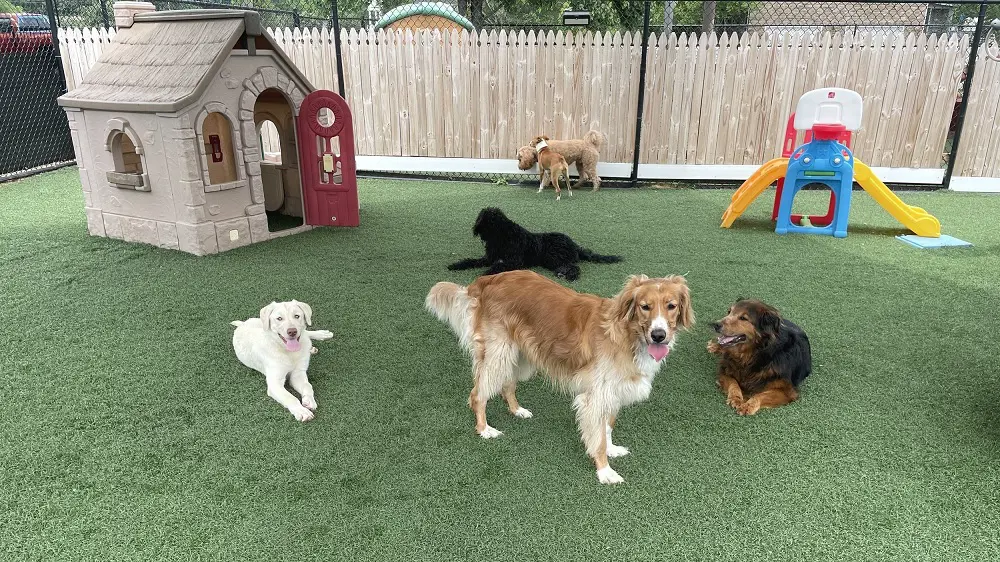Samoyed Dog Breed Profile Information And Characteristics
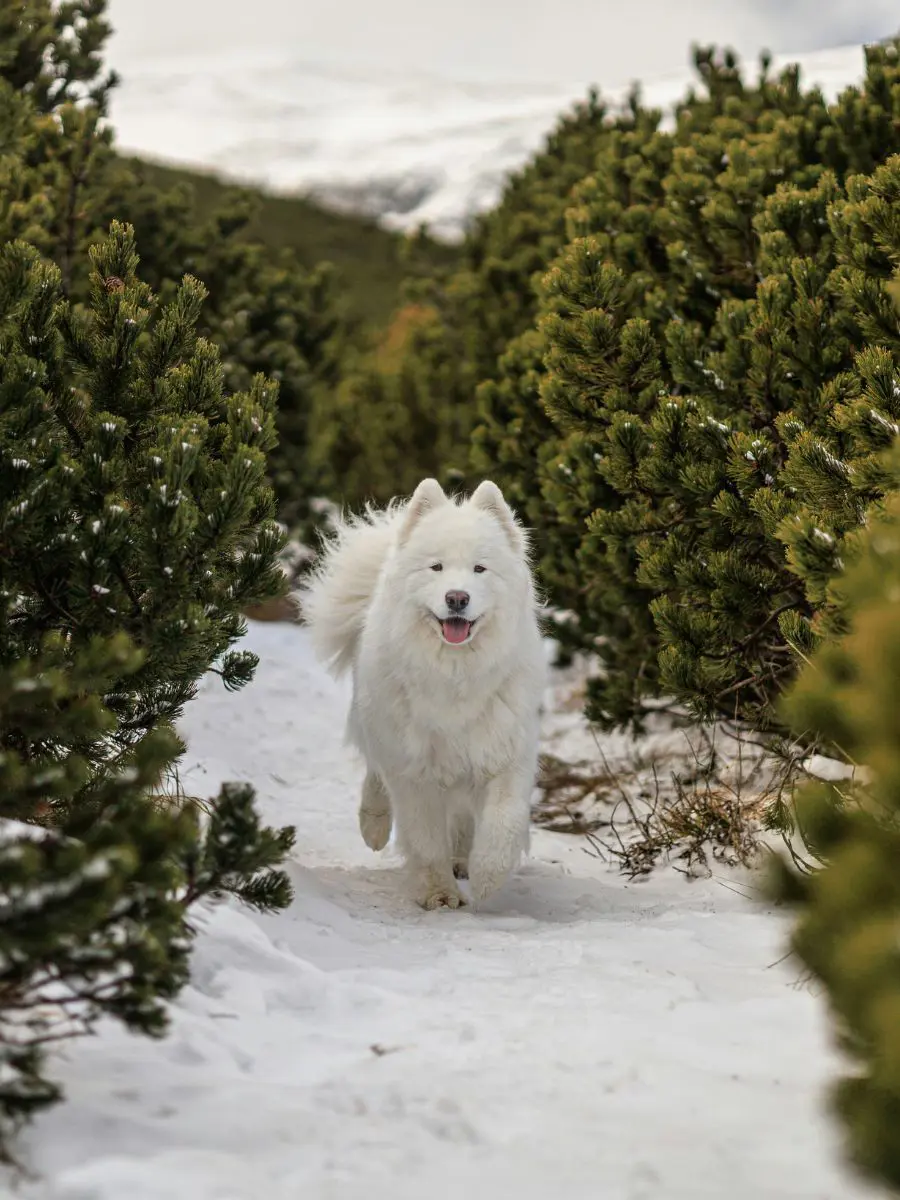
This breed epitomizes an old and gracefully exquisite dog in its stylish, snow-white coat color, friendly character, and loyal disposition, and they are also smart-looking and diligent dogs. The nomadic Samoyedic people of Siberia did their breeding to herd reindeer and pull sleds.
Known for their "sammy smile," their thick, weatherproof coat keeps them warm through the worst cold and adds to their cute appearance. Offset by their playful demeanor and strong attachment to human families, hereditary traits are independent and sharp instinctually from their resourceful working dog days.
Overview
- Lifespan: 12 to 14 years
- Weight: For males: 50 to 60 pounds, For Female: 35 to 50 kgs
- Height: For Males: 21 to 23.5 inches
- Height For Females: 19 to 21 inches
- Color: Pure White, Cream, Biscuit
- Personality: Friendly, Gentle, Outgoing, Social, Intelligent, Playful
History And Origin Of Samoyed Dog
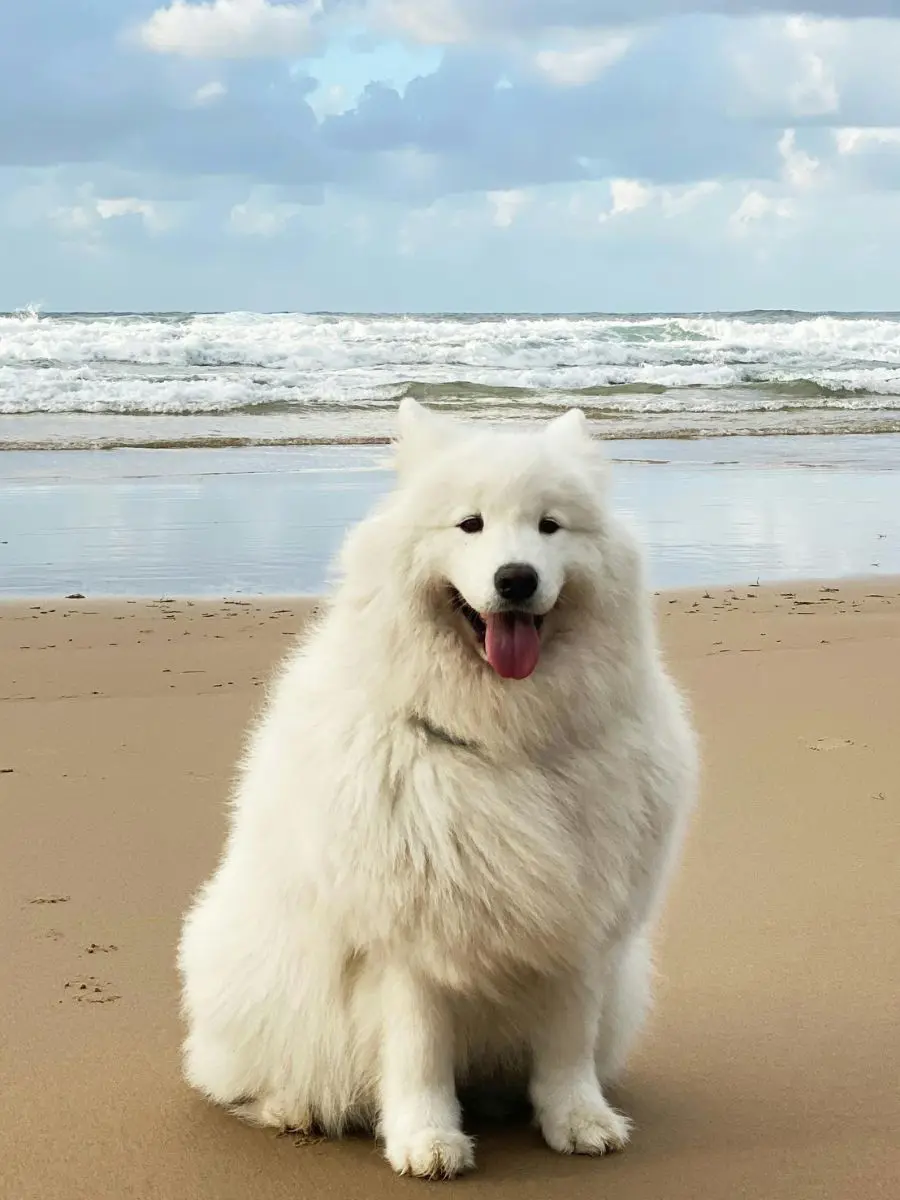
The breed was named after the Samoyedic people, the nomads in Siberia, so its history is inextricably linked to the harsh Arctic climate. Generations of those Samoyed tribesmen were kept alive due to their ability to pull sleds, herd reindeer, and warm up the masters during a cold night.
The breed, with its thick, weather-resistant coat and extraordinary stamina, was tailor-made for the harsh Siberian climate. It was not until the late 19th and early 20th centuries, however, that explorers finally brought Samoyeds to Europe and the United States, where their beauty and adaptability rapidly made them a favorite.
They were attractive animals of pleasant disposition, with a most interesting history as a devoted and hardworking companion; even today, the popularity of Samoyeds remains unabated.
Characteristics and Rating
The Samoyed dog's attributes are rated (out of 5) as follows.
| Family Friendly | 5 |
| Exercise Needs | 4 |
| Easy to Train | 3 |
| Tolerates Being Alone | 2 |
| Likes other Pets | 4 |
| Energy Level | 5 |
| Grooming Needs | 4 |
| Shedding | 5 |
| Affection | 5 |
| Playfulness | 5 |
| Alertness | 4 |
Friendly and Sociable
Known to be extroverted and friendly, Samoyeds become great family companions since they are gregarious dogs that like staying near humans. They get along well with children and other animals alike.
Energetic and Playful
They do have quite a decent level of activity, hence requiring constant exercise to be happy and healthy. They are, therefore, good in active families due to their nature of wanting to be out, maybe playing games or hiking and even running.
Intelligent but Independent
Even though Samoyeds are smart, lively, and easy to teach, from time to time, they can be very bossy and willful. Hence, they need to be continually trained with positive reinforcement to develop good habits.
Affectionate and Loyal
Samoyeds are said to be very attached to their families. They lavish love on their owners and can rarely be seen far from our sides, always opting to stay as near as possible for a cuddle or some quality time together.
Alert and Watchful
They do eventually become good watchdogs as they are very watchful by nature. The dog is not vicious or quarrelsome, but he will definitely interfere with a warning given to his master in case he notices something unusual.
Samoyed Dog Personality Traits
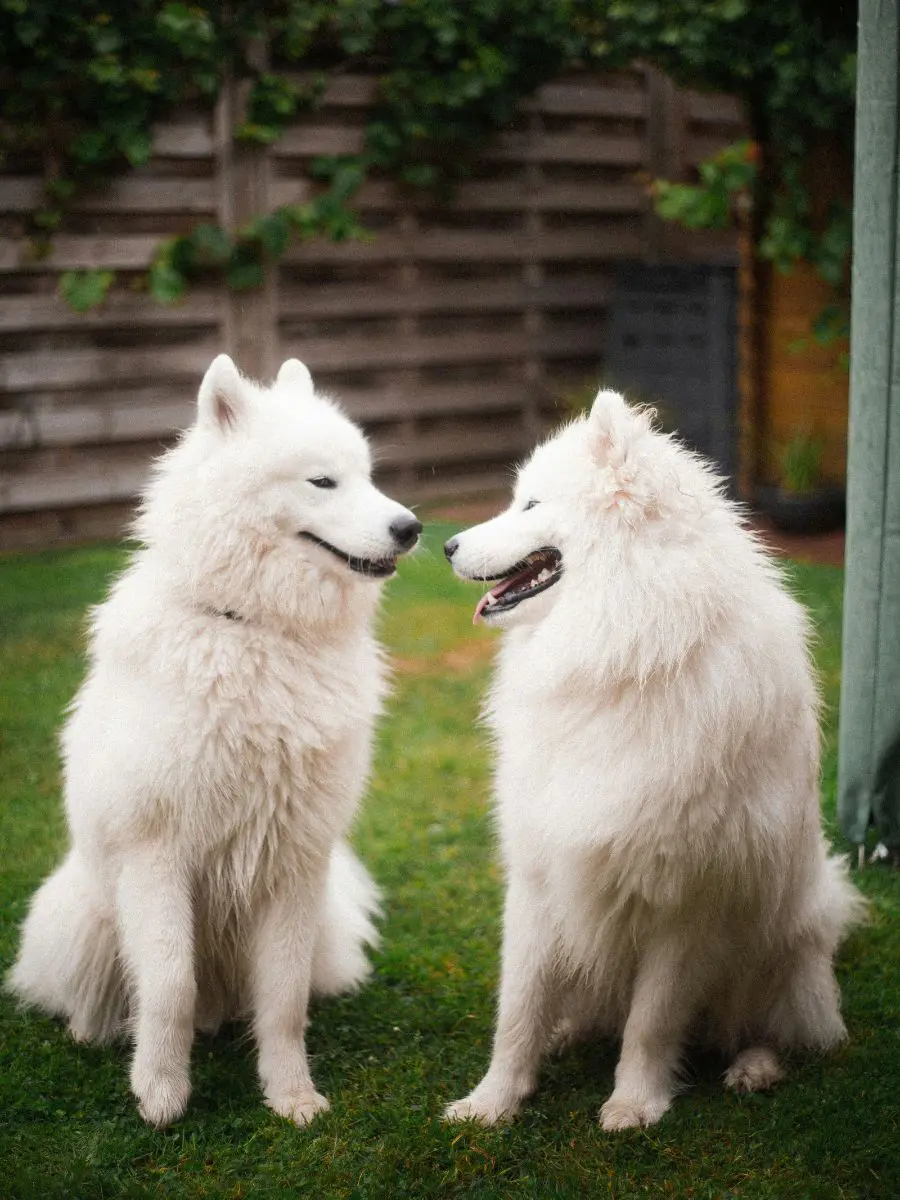
Samoyed dogs require a lot of attention, and if they are left alone for a long time, they can develop anxiety or even boredom. They are mostly friendly and neighborly towards strangers, have a fine nature towards children, and enjoy interaction and playful activities.
The breed of dog that is the Samoyed, is warm in temper, so it's quite fitting for a family pet. Playful and dear, they surely are social dogs, so much loving to be amongst people, kids, and other pets. While their independence may sometimes prove to be a challenge during the process of training, this does not lessen the level of their intelligence and loyalty. Coupled with the strength of being energetic and active is the need for daily exercise to keep them happy and healthy.
Samoyed dog energy can never be more delightfully put into use than in service as companions in activities. The Samoyed is energetic but gentle and patient, with a disposition striking a fine balance between protection and affection.
Friendly and Affectionate
Essentially warm and friendly, Samoyeds make good family pets since they are oriented towards humans, good with children, and get along very well with them. Their friendly nature extends to strangers, and they show no aggression; hence, no concern is raised when visitors come to a home.
Social and Playful
The Samoyeds are extremely extroverted and very social. They love to socialize, be with people, and be part of the family. One will notice their nature to be very playful during gameplay and active playing. At the same time, this strengthens the bonding process between the owner and himself by keeping him busy.
Intelligent but Stubborn
Agile and intelligent, the Samoyeds also have an extremely stubborn streak. Their independence might make training just a little bland because they will try to circumvent commands or test the limits. They need regular training with positive reinforcement to help keep their will at bay.
Loyal and Protective
Samoyeds are protective but very dedicated to their owners. They bark more and are friendly. They do not bite, but one can rely on them to alert their owners in case of anyone or anything that they feel is a danger to them.
Gentle and Patient
Although Samoyeds are very active, they are gentle and patient in nature, hence great mates for families with toddlers. They help those children to adapt easily to different family settings by nature, being quiet and tolerant.
Nutrition And Diet
Proper nourishment is essential for maintaining a Samoyed dog's health and energy. Ensuring a well-balanced diet is essential for keeping the breed full of energy and agility.
A great, well-balanced diet is supposed to contain the right fat, high-quality protein to enhance muscle development, and vital vitamins and minerals for general health. This means they do gain weight fairly easily and need regular exercise with careful control of their calorie intake.
You can finesse your Samoyed's correct amount of nutrition for lifelong health, activity, and happiness by choosing a good dog food company and tailoring it to the age of your dog, its size, and energy level.
Balanced Diet
A balanced diet and supplements keep your Samoyeds busy and fit. Meats are probably the best form of protein for dogs to help build muscle and reduce calories. The most preferred supplements are added vitamins, minerals, good fats, and good carbohydrates.
Protein
Proteins play a very important role in muscle growth and general body health for any Samoyed. The age and activity level will determine this. It should be 20-30%. Quality and good sources of proteins include fish, cattle, or chicken, which form a bigger portion of the percentages.
Fats
Healthy skin and a shining coat are obtained when the diet contains healthy fats. Fats are good for health, and Omega-3 and Omega-6 fatty acids are derived from flaxseed or fish oil. The diet should contain 8–15% fat. Excess fat should not be given, as the Samoyeds quickly gain weight and become obese.
Carbohydrates
These can certainly be good for general health while also serving as a source of energy. Good sources will then be vegetables like sweet potatoes and healthy grains like brown rice or oats. Although they do have high content of carbohydrates to add to your diet, you should be wary of filler ingredients such as soy or corn.
Vitamins and Minerals
Vitamins and minerals are essential for a balanced nutrition and the building of a healthy body. Pay attention to added vitamins A, D, E, and B and minerals like calcium and phosphorus in dog foods. They promote good bone health, immunity, and energy metabolism.
Portion Control
Observe the recommended serving sizes on the food packaging to prevent obesity in your Samoyed pup. Be more or less generous according to your pet's weight and activity. Seek advice from your vet.
Hydration
Ensure that your Samoyed always has access to clean, fresh water. Drinking enough water is crucial for your dog's general health since it aids in nutrient absorption and digestion from the food they eat.
Avoid Human Food
It is, however, advisable that you do not feed your Samoyed on human foods since they are toxic to the dog, such as chocolate, grapes, onions, and bones. Instead, stick to dog-only treats and foods in your diet to maintain their health and safety.
Special Diets
If special diets, health issues such as allergies, and overweight conditions are required for your Samoyeds, consult with your veterinarian. They can recommend the proper diets and supplements if they exist to treat these types of disorders.
Regular Check-ups
Visit your vet regularly, and you will ensure that your Samoyed gets all the nutrition he needs to be healthy. Your vet will also show you, too, which changes in food need to be made and help address the nutritional issues so that your dog is fit to the max.
Care For Samoyed dog
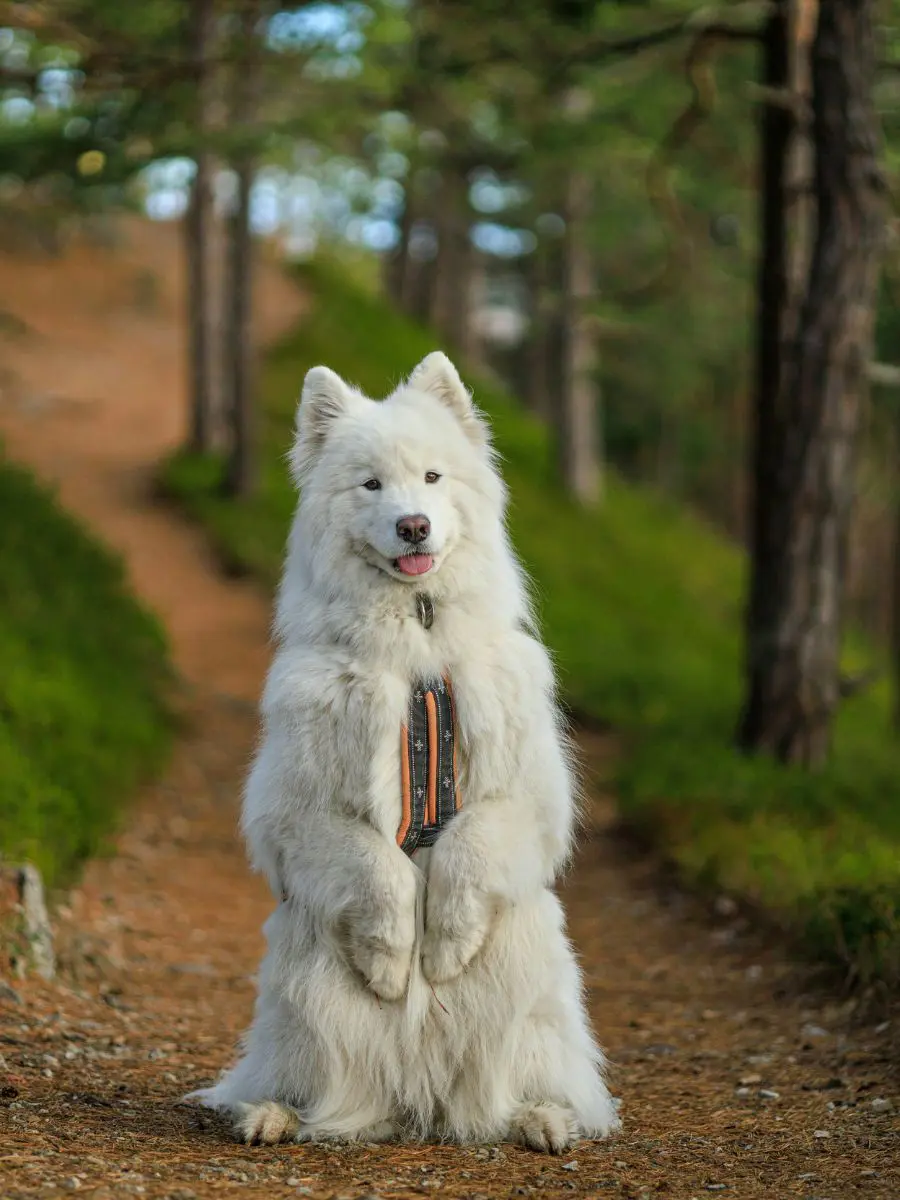
They are loving and clever dogs, making excellent companions. However, they will require good care to be ignited with a balanced approach.
Apart from regular grooming and exercise, Somayed dogs require some training and attention to their general well-being. Their coat can be curly or wavy. Therefore, frequent brushing and professional grooming will be required to prevent their hair from matting and make them look good.
Therefore, good health results from proper diet and routine veterinarian care, and problems can be avoided quite early. Welfare, thus, is associated with an environment that provides the principles of safety and security.
Exercise Needs
Since Samoyeds are active dogs, constant exercise is necessary for their good health and happiness. This should include at least an hour, or even more, of daily physical activity. It may also include playtime, walking, and mental stimulation activities. Running or hiking quickly uses up lots of energy, and it will also keep them in trim condition.
Socialization and Training
Socialize your Samoyed early enough to make him well-adjusted and calm around people and other animals. Positive reinforcement backed by consistent training will keep the instinctive tendency towards independence in line and ensure that he grows with good manners and compliance.
General Tips
These dogs require vigorous exercise daily, along with frequent grooming and positive training, to maintain good health and happiness. They will also require some physical and mental stimulation and proper health care.
Health Issues
Basically a healthy breed, the Samoyeds are no different from any other breed that is not quite impervious to some health complications. Knowledge of these possible difficulties is the basis of their survival and healthy existence.
Some of the serious hereditary conditions are hip dysplasia and progressive retinal atrophy, besides hypothyroidism and allergies, which are some of the important diseases in this breed. Early detection of these conditions is the key to their management through regular veterinary check-ups.
It's only through vigilance and knowledge that owners can really give their Samoyeds the best possible life, which means happy and healthy, by defeating health concerns before they get too intense.
Hip Dysplasia
More common but still acquired is hip dysplasia, in which pain and a limp ensue from the misfitting of the hip joint into the socket. The symptoms include lameness, a dislike of standing and sitting down, a range of motion is limited, and the dog has difficulty getting up. Considering everything, treatment of the disease will pretty much be controlled by keeping a good weight and by visiting the veterinary doctor periodically.
Progressive Retinal Atrophy (PRA)
PRA is an inherited eye condition whereby it is known that the dog suffers from blindness and progressive loss of vision. The first signs include the inability to travel in poor light and darkness. There is no treatment for PRA, although routine ophthalmic examinations may allow early detection. Management is mainly directed towards safety issues and adapting the environment to the needs of the dog.
Allergies
Allergies to diet, environmental factors, or fleas may trouble a Samoyed. Itching, skin irritation, and stomach upsets are common symptoms. If the veterinarian can identify the allergen, the nuisance can be reduced by managing the particular symptoms related to the allergen.
Hypothyroidism
Hypothyroidism is an endocrine disorder involving a low concentration of the thyroid hormone in an animal's body. Feline hypothyroidism presents clinically with weight increase with no change in appetite, laziness, and dull fur. However, it can be controlled by a daily intake of hormone pills, which work very well in controlling such symptoms of hypothyroidism.
Dental Issues
The Samoyeds can thus be at risk of dental disease conditions, including cavities, as well as periodontal diseases, which may include red and swollen gums, breath foul smell, and loose teeth. Thus, cleaning of the teeth and their professional care is vital to dental health and the non-occurrence of complications.
Cushing's Disease
Hyperadrenocorticism is an endocrine disorder in which the adrenal glands overproduce cortisol. This causes the main symptoms of weight increase, thirst or urination, and a thin coat. Treatment normally involves medication to help control hormone levels and reduce the power of the symptoms.
Skin Conditions
Skin diseases in Samoyeds include infection, dermatitis, and hot spots. Prevention involves regular grooming and timely treatment of skin lesions. Keeping the coat dry and clean will reduce the possibility of skin lesions developing.
Where To Buy Or Adopt Samoyed Dog
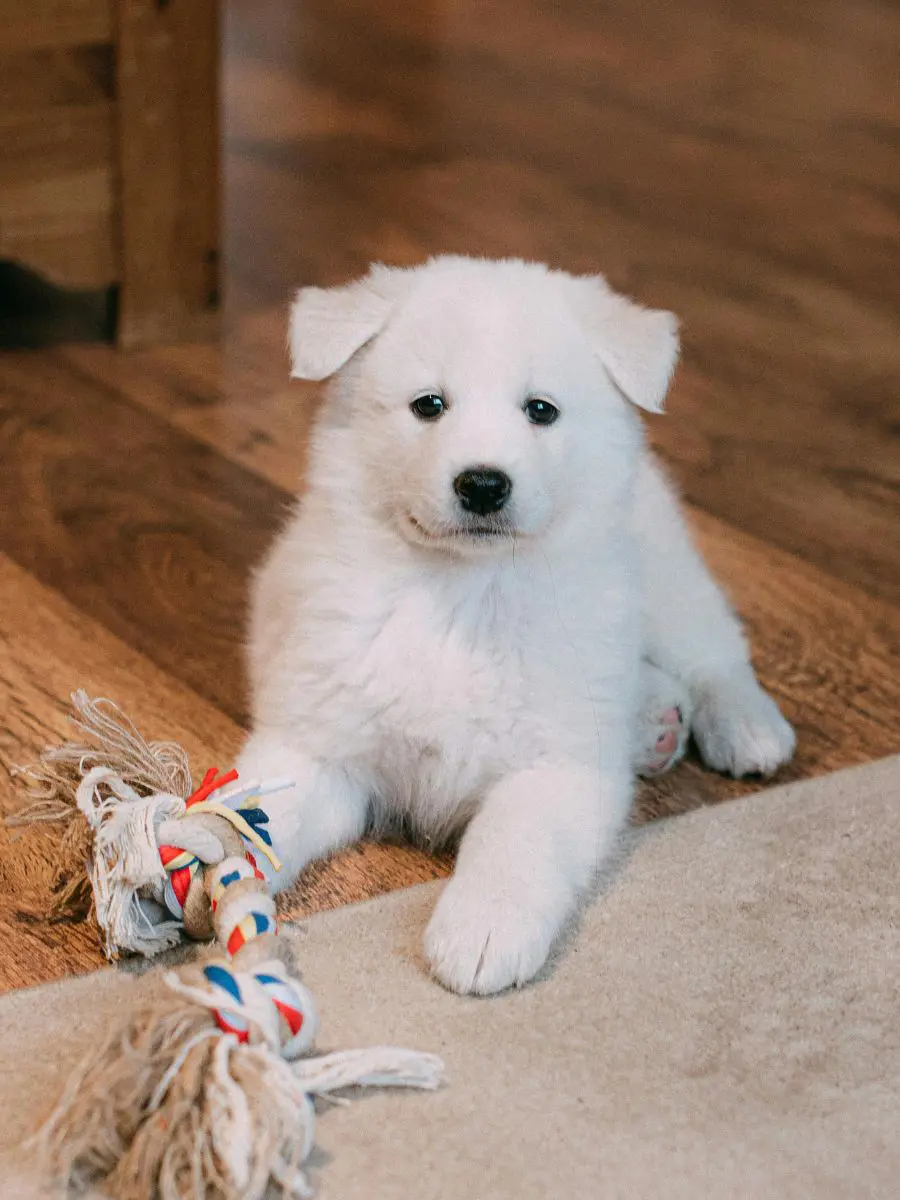
If you buy a Samoyed, you should always find a good breeder who loves dogs for their health and welfare. One needs to look for breeders who work within the boundaries of ethical breeding and are members of a reputed breed club.
Adoption from a shelter or rescue group is often the right decision. Too many Samoyeds end up in rescue not because of behavioral or health problems but because of changes in the lives of their original owners, who are no longer in a position to take care of them. Most often, breed-specific rescues have samoyeds ranging in age from puppyhood to adults and seniors.
You will be surprised by how many online sources you can find where you can adopt or buy a Samoyed. Check out Petfinder, Adopt a Pet, or one of several breed-specific rescue sites for homeless dogs.
Top Lists
